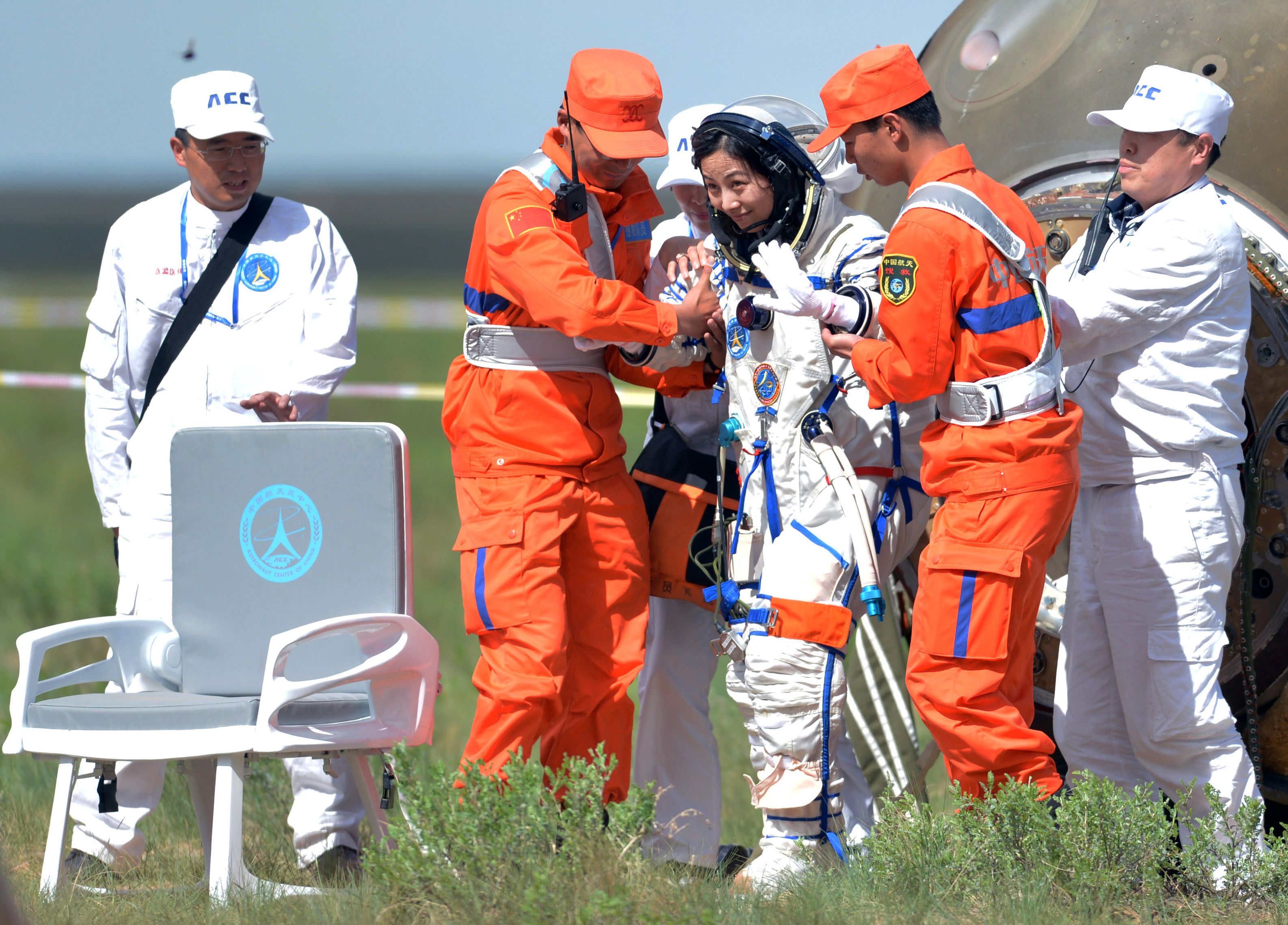
After spending six months constructing the Tiangong station, a representation of the nation’s ambitious space program, three Chinese astronauts finally touched down in a northern desert on Sunday, according to official television.
At around 8:10 p.m. (1210 GMT), a spacecraft carrying commander Chen Dong and astronauts Liu Yang and Cai Xuzhe landed at a landing site in the Gobi Desert in northern China, according to China Central Television.
They shared space with three colleagues who came on the Shenzhou-15 mission on Wednesday for their six-month stay for nearly five days before their departure, making it the first time China had six astronauts in space at the same time. This month, the third and last module of the station docked with it.
About 40 minutes after the touchdown, medical personnel removed the astronauts from the capsule. They waved joyfully to the employees at the landing site while wearing smiles and appearing to be in good health.
The three astronauts took part in the June launch of the Shenzhou-14 mission. Chen, Liu, and Cai oversaw five rendezvous and dockings with various spacecraft following their arrival at Tiangong, one of which was carrying the third of the station’s three modules.
Additionally, they carried out three spacewalks, conducted several experiments, and streamed a live science lecture from the station.
The Tiangong is a component of China’s announced intentions to have a manned space station in orbit permanently.
Following its exclusion from the International Space Station, China constructed its station, largely as a result of U.S. concerns regarding China’s space programs’ tight ties to the People’s Liberation Army, the military wing of the country’s ruling Communist Party.
The Shenzhou-15 mission brought the station’s weight up to its maximum of 100 tons.
The International Space Station, which launched its first module in 1998 and weighs around 465 tons, is much heavier than the Chinese station, which weighs roughly 66 tons without any associated spacecraft.
If the International Space Station retires as anticipated by the end of the decade, Tiangong, with a lifespan of 10 to 15 years, maybe the only space station in existence at some point in the future.
After the former Soviet Union and the United States, China became the third government to launch an astronaut into orbit on its own in 2003.
Although no timetable has been provided, officials are reportedly exploring a crewed expedition to the moon in the future.

